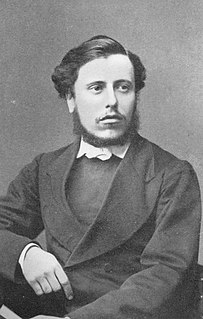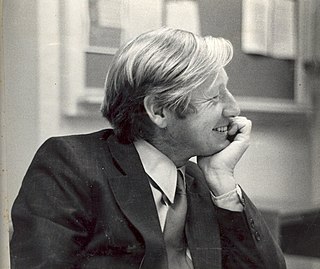A Quote by Arthur Schopenhauer
Imagination is strong in a man when that particular function of the brain which enables him to observe is roused to activity without any necessary excitement of the sense. Accordingly, we find that imagination is active just in proportion as our sense are not excited by external objects. A long period of solitude, whether in prison or in a sick room; quiet, twilight, darkness-these are the things that promote its activity; and under their influence it comes into play of itself.
Quote Topics
Accordingly
Active
Activity
Any
Brain
Darkness
Enables
Excited
Excitement
External
Find
Function
Him
Imagination
Influence
Itself
Just
Long
Long Period
Man
Necessary
Objects
Observe
Our
Particular
Period
Play
Prison
Promote
Proportion
Quiet
Room
Sense
Sick
Solitude
Strong
Things
Twilight
Whether
Which
Without
Related Quotes
With any hallucinations, if you can do functional brain imagery while they're going on, you will find that the parts of the brain usually involved in seeing or hearing - in perception - have become super active by themselves. And this is an autonomous activity; this does not happen with imagination.
For one who is indifferent, life itself is a prison. Any sense of community is external or, even worse, nonexistent. Thus, indifference means solitude. Those who are indifferent do not see others. They feel nothing for others and are unconcerned with what might happen to them. They are surrounded by a great emptiness. Filled by it, in fact. They are devoid of all hope as well as imagination. In other words, devoid of any future.
As you are aware, no perceptions obtained by the senses are merely sensations impressed on our nervous systems. A peculiar intellectual activity is required to pass from a nervous sensation to the conception of an external object, which the sensation has aroused. The sensations of our nerves of sense are mere symbols indicating certain external objects, and it is usually only after considerable practice that we acquire the power of drawing correct conclusions from our sensations respecting the corresponding objects.
We have no other notion of cause and effect, but that of certain objects, which have always conjoin'd together, and which in all past instances have been found inseparable. We cannot penetrate into the reason of the conjunction. We only observe the thing itself, and always find that from the constant conjunction the objects acquire an union in the imagination.
There's one uneasy borderline between what is external and what is internal, and this borderline is defined exactly by the sense organs and the skin and the introduction of external things within my own body. Consciousness is altered by physical events and physical objects, which impinge upon my sense organs, or which I introduce into my body. Now the name traditionally given to external objects or processes which change you internally is sacrament. Sacraments are the visible and tangible techniques for bringing you close to your own divinity.
Creativity has nothing to do with any activity in particular - with painting, poetry, dancing, singing. It has nothing to do with anything in particular. Anything can be creative - you bring that quality to the activity. Activity itself is neither creative nor uncreative. You can paint in an uncreative way. You can sing in an uncreative way. You can clean the floor in a creative way. You can cook in a creative way. Creativity is the quality that you bring to the activity you are doing. It is an attitude, an inner approach - how you look at things.
Imagination! Imagination! I put it first years ago, when I was asked what qualities I thought necessary for success upon the stage. And I am still of the same opinion. Imagination, industry [hard work], and intelligence-the three I's-are all indispensable to the actor, but of these three the greatest is, without any doubt, imagination.
For, what is order without common sense, but Bedlam's front parlor? What is imagination without common sense, but the aspiration to out-dandy Beau Brummell with nothing but a bit of faded muslin and a limp cravat? What is Creation without common sense, but a scandalous thing without form or function, like a matron with half a dozen unattached daughters? And God looked upon the Creation in all its delightful multiplicity, and saw that, all in all, it was quite Amiable.








































